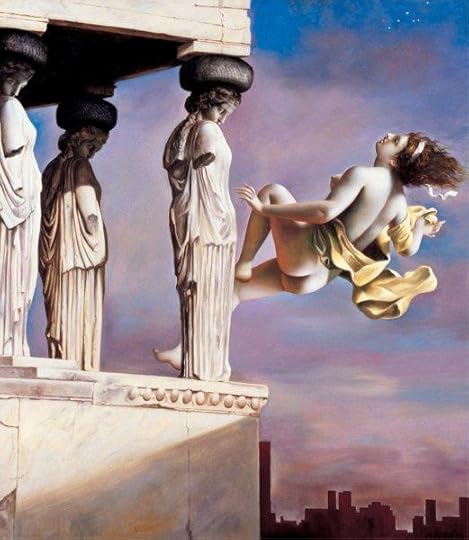What do you think?
Rate this book


224 pages, Hardcover
First published October 1, 2000
A spasm of sweetish sadness made my mind droop; I thought perhaps Lydia was right, perhaps I am a sentimentalist. I brooded on words. Sentimentality: unearned emotion. Nostalgia: longing for what never was.
What can I do now but stand on this crumbling promontory and watch the past as it dwindles? When I look ahead, I see nothing except empty morning, and no day, only dusk thickening into night, and, far off, something that is not to be made out, something vague, patient, biding. Is that the future, trying to speak to me here, among these shadows of the past? I do not want to hear what it might have to say.



"I clearly recall the day I first became truly aware of myself, I mean of myself as something that everything else was not...
"A myriad voices struggled within me for expression. I seemed to myself a multitude...
"Acting was inevitable. From earliest days life for me was a perpetual state of being watched. Even when alone I carried myself with covert circumspection, keeping up a front, putting on a performance. This is the actor's hubris, to imagine the world possessed of a single, avid eye fixed solely and always on him. And he, of course, acting, thinks himself the only real one, the most substantial shadow in a world of shades..."
"She exasperates me, I confess it. I do not trust her...
"At times she has a look, a fleeting, sidelong, faintly smiling look, in which I seem to glimpse a wholly other she, cold and sly and secretly laughing. With such ingenuity does she connect the workings of the world to her own fate. Everything that happens, she is convinced, carries a specific and personal reference to her. There is nothing, not a turn in the weather, or a chance word spoken in the street, that does not covertly pass on to her some profound message of warning or encouragement."
"What in my mother was distraction turned out in Cass to be an absence, a lostness. Thus the march of the generations works its dark magic, making its elaborations, its complications, turning a trait into an affliction...
"Whole days my girl would keep to her bed, ignoring all entreaties, all reproaches..."

"As coisas podem correr mal. Minha Marina, minha Miranda, oh, minha Perdita."